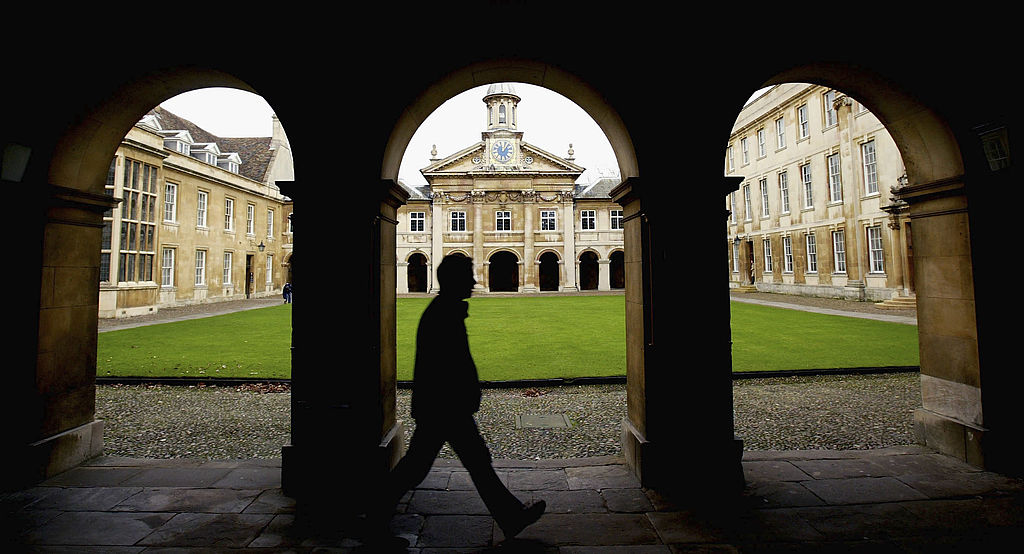Students have had a rough deal over the past years. They’ve had their degrees interrupted by Covid and teaching strikes, they’re set to graduate into an economic crisis, and they’re saddled with record amounts of debt which they’ll repay earlier and for longer. So for many, the proposed ‘marking boycott’ might feel like the last straw.
In April, the University and College Union, which represents academics and university support staff, announced that they planned to stop ‘all summative marking and associated assessment activities/duties’, including ‘assessment-related work such as exam invigilation and the processing of marks’. This decision has left students in limbo, with no idea whether their work will be marked and when they’ll be able to graduate.
Yesterday students at Cambridge received an email from the Pro-Vice Chancellor for Education saying that proposals to ‘introduce exceptional powers to help mitigate the impacts of the boycott’ have been voted down. This means most students will see significant delays in marking, and will graduate later than they hoped. For many, marking won’t begin until the boycott’s close at the end of September when the UCU’s mandate for industrial action expires. The university can only promise ‘to make every effort to get work marked’ with very limited provision for what this might look like.
For university finalists, this decision is the latest episode in a long series of disruptions. In 2019, A-Level exams were cancelled due to Covid. In order to protect the elderly, schools were closed and years of education were dramatically curtailed. The result: 44.8% of sixth formers received an A or A*, completely devaluing the top marks for those that worked hardest.
Upon arriving at university, this cohort has found itself repeatedly cast as society’s sacrificial lamb. Since 2019, Cambridge has not seen a single term without significant disruption to teaching. Students across the country have been locked up in halls, in some cases literally, while lectures were delivered over Zoom. In the terms where Covid wasn’t to blame, teaching has often stopped altogether due to an ongoing industrial dispute between academics and the University and Colleges Employers Association, the national body which provides member universities with pay guidance. Now that four years of strikes have failed, academics have drawn the final arrow in their quiver, and have taken industrial action that will prevent some students from graduating. The threatened marking boycott will put thousands of masters programmes, student visas, and jobs across the country at risk.
This strike isn’t just about the union’s negotiation position; it is a hostage situation and we are powerless as to whether the ransom gets paid
At Cambridge, and at most universities, we have nobody to defend us from this fate. The so-called Student Union, the body established to protect our interests, is wholly in favour of the boycott: the Student Council has passed a motion which supports UCU action regardless of its detriment to students.
There’s a reason this dispute has dragged on for four years. It’s because strike action like this simply does not work. A strike must hurt the party that one is negotiating with, ideally financially. In 1968 the female sewing machinists at Ford Motor Company in Dagenham walked out to protest unfair pay. The strike hurt the company, limiting their profits and halting their production lines. After three weeks pay was raised to near parity with male coworkers. The strike was successful because it affected the negotiating party and hit their pocketbooks.
The UCU’s strikes do no such thing. Almost every student I know supports the UCU. Kings’ Parade is awash with badges and signs declaring that we ‘support striking staff’. However, the silent majority is powerless to negotiate. In fact, even the university is unable to intervene as this is an issue for national employers’ bodies: the UCEA for pay and UUK for pensions.
For however long lecture halls remain empty, students will continue to part with £9,250 a year, regardless of the quality of the education they receive, or even their ability to graduate. This strike isn’t just about the union’s negotiation position; it is a hostage situation and we are powerless as to whether the ransom gets paid.
The higher education system has become untenable, and almost impossible to fund. This can only be resolved with an overhaul of the way universities operate. Until this happens, it is not fair to continuously punish students who don’t have a seat at the negotiating table.







Comments